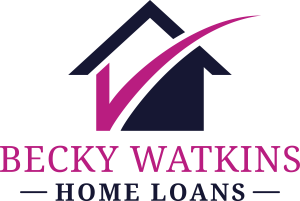The Beginner’s Guide to Investment Property Loans in New Mexico
New Mexico, with its vibrant culture and diverse landscape, offers a unique opportunity for those looking to invest in property. The state's growing economy, combined with affordable real estate markets in cities like Albuquerque and Santa Fe, makes it an attractive destination for property investors. Understanding investment property loans is crucial, especially for beginners venturing into this lucrative but complex field.
These loans differ significantly from standard residential mortgages, with varying requirements and structures tailored to investment purposes.
This guide aims to demystify the process of securing an investment property loan in New Mexico.
We'll delve into different types of loans available, discuss key requirements, and provide insights on navigating the financial landscape. Whether you’re looking to make your first investment or expand your portfolio, this beginner’s guide is your starting point for a successful journey in New Mexico's real estate investment market.
What is an investment property loan?
Investment property loans are specialized financial products designed for purchasing real estate that will be used for generating rental income or for resale at a profit, rather than as a primary residence.
Unlike personal mortgages, which are typically secured with the borrower’s home and often have lower interest rates and longer terms, investment property loans come with higher interest rates and require larger down payments.
This is because lenders view these loans as higher risk, given that tenants' rent payments are the primary source of loan repayment.
There are several types of investment property loans available to potential investors. Conventional loans, which are not insured by the federal government, typically require a 20% down payment.
Government-backed loans, like those from the Federal Housing Administration (FHA), offer lower down payments but come with specific regulations and limitations. Hard money loans from private lenders are another option, often used for short-term financing with higher interest rates.
Investing in New Mexico offers unique advantages. The state's real estate market has shown consistent growth, and its diverse economic landscape, from tourism to tech, provides a robust backdrop for investment opportunities.
Properties in areas like Albuquerque, with its thriving arts scene and tech innovation, or Santa Fe, known for its cultural richness, present lucrative options for investment property ventures.
Want to finance a property based on future rental income?
Using a DSCR loan allows you to put the potential rental income into the qualifications of the loan. This helps standard American home owners build their real estate portfolio without astronomical down payments. Talk to Becky about strategizing your investment property loan.
The Appeal of New Mexico for Property Investors
New Mexico, often referred to as the Land of Enchantment, presents a compelling case for property investors. Its appeal lies not just in its scenic beauty and rich cultural heritage but also in its burgeoning economic landscape.
Recent economic data reveal a steady uptick in property values across the state, with cities like Albuquerque and Santa Fe leading the charge. The median home value in New Mexico has seen a significant increase over the past year, outpacing national averages.
This growth is fueled by a diverse economy, strong in sectors like energy, technology, and tourism, attracting a steady stream of new residents and businesses.
The state's economy benefits from a robust tech sector, including a growing presence in renewable energy and innovative startups.
This economic diversity not only ensures a steady rental market but also promises long-term property value appreciation. Additionally, New Mexico’s tourism industry, with its unique cultural attractions and outdoor activities, continues to thrive, further bolstering the real estate market.
Understanding the types of investment property loans available in New Mexico is crucial for capitalizing on these opportunities.
Investors can choose from conventional loans, which are ideal for those with strong credit histories, to government-backed options like FHA loans, which offer lower down payments but come with certain restrictions. For those looking for quick, short-term investments, hard money loans provide a viable option, albeit at higher interest rates.
Which Loan Programs are Best for Property Investment
Choosing the right loan program is a critical decision for property investors. Conventional Loans are a popular choice, known for their straightforward terms and competitive interest rates. These loans typically require a higher credit score and a down payment of at least 20%, making them suitable for investors with a strong financial footing. Conventional loans offer the flexibility of varying term lengths and are not restricted by the property type.
Government-Backed Loans, such as FHA and VA loans, are designed to encourage homeownership but can also be used for investment properties, particularly for multi-unit properties where the investor also resides in one of the units. These loans often require lower down payments and are more accessible to investors with moderate incomes or credit scores. However, they come with specific eligibility criteria and property standards.
Hard Money Loans are a viable option for investors looking for short-term financing or those with challenges in securing traditional financing. These loans are asset-based, relying more on the property's value than the borrower's creditworthiness, and can be obtained quickly, but usually at higher interest rates.
Other loan types, like Bridge Loans and Home Equity Lines of Credit (HELOCs), offer additional flexibility. Bridge loans help investors manage the gap between buying a new property and selling an existing one, while HELOCs allow investors to use existing home equity to fund new property purchases.
Each loan type has its unique features and requirements, making it crucial for investors to carefully consider their financial situation, investment strategy, and the specific property they’re interested in to determine the best fit.
Credit Score Requirements for Investment Property Loans
Securing an investment property loan involves navigating various financial prerequisites, each playing a pivotal role in loan approval and terms. A key factor is the credit score requirement. Typically, a higher credit score is essential for conventional loans, often needing a score of 620 or above. This score reflects the borrower's creditworthiness and influences interest rates offered. For government-backed loans, the requirement might be more lenient, but a good credit score still enhances approval chances and better terms.
Down payment expectations vary by loan type. Conventional loans usually require a down payment of 20-30% of the property's purchase price, whereas government-backed loans can have lower requirements, sometimes as little as 3.5%. However, a larger down payment often results in more favorable loan terms, including lower interest rates.
The Debt-to-Income ratio (DTI) is another crucial metric lenders consider. It measures the balance between a borrower's monthly debt payments and income. Generally, a DTI ratio of less than 36% is preferred, with no more than 28% of that debt going towards servicing the mortgage. These numbers are generalizations and will only be specific once a licensed loan originator has detailed financial information from you.
Additionally, lenders assess other financial aspects, such as liquid assets, investment experience, and the overall financial stability of the borrower. Demonstrating a stable income, additional assets, and experience in property investment can significantly enhance loan approval prospects and conditions.
Steps to Getting Your Investment Loan Financing
Embarking on your investment property journey is seamless with our specialized loan process, designed to prepare and empower you at each stage. It begins with a discovery call, where we delve into your investment goals and financial landscape.
This conversation is key to crafting a personalized plan that aligns your property ambitions with a feasible budget, seamlessly integrating your mortgage into your wider financial strategy.
The next phase involves pre-qualification, where you'll submit a comprehensive loan application along with essential documents such as pay stubs, W2s, bank statements, and tax returns. This step is crucial in establishing your financial readiness for the investment.
With pre-qualification in hand, you then move on to the exciting phase of searching for the perfect investment property. This step is bolstered by the confidence that comes from having a solid financial backing.
Once you've identified the right property, the process advances to offer submission. Here, you'll work with a real estate agent to negotiate and secure the best possible terms for your investment. Following a successful offer, the loan application process intensifies.
Our Underwriting team meticulously reviews your application, ensuring all criteria are met for a successful investment.
The latter stages of the process include several critical steps: the Underwriter's approval, property appraisal to ascertain fair market value, and the finalization of any remaining loan approval conditions. Your ongoing engagement with your Loan Officer during this phase is essential for a smooth progression to the closing stages.
As the closing day nears, we meticulously prepare all financial details, guiding you towards the final transaction.
This culminates in the closing event held at the title company’s office, where you'll sign off on the closing documents, marking a significant step towards achieving your investment aspirations.
The journey concludes with the much-anticipated moment of receiving the keys to your new investment property.
It's a time for celebration, a moment to acknowledge the achievement and the start of a new chapter in your investment journey. With us, securing an investment property loan is not just a transaction but a path marked by clarity, support, and success.
FAQs about Investment Property Mortgages
What type of loan is best for investment property?
The best loan for an investment property varies based on your financial situation and investment goals. Contact Becky Watkins to explore tailored loan options that fit your unique needs.
Can a 203k loan be used for an investment property?
A 203k loan is generally designed for owner-occupied properties, not for investment properties. For more details on suitable loan options for investment properties, reach out to Becky Watkins.
How do investment property loans work?
Investment property loans are structured differently from personal mortgages, often requiring higher down payments and interest rates. Becky Watkins can provide you with comprehensive insights into how these loans work and assist you in navigating the process.
How do I get a loan for an investment property?
Getting a loan for an investment property typically involves a thorough assessment of your financial situation and the property's potential. Connect with Becky Watkins for a detailed overview and guidance on securing the right loan for your investment.
Talk to a New Mexico Investment Property Expert












